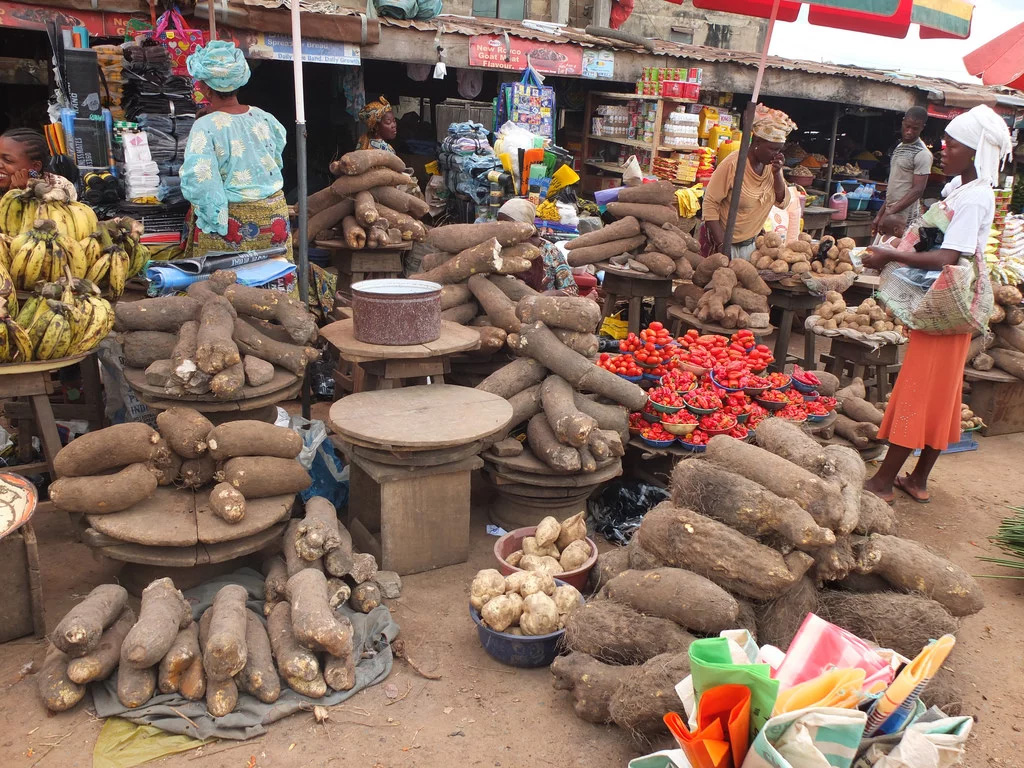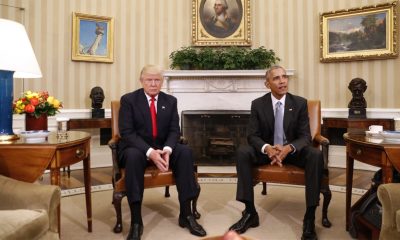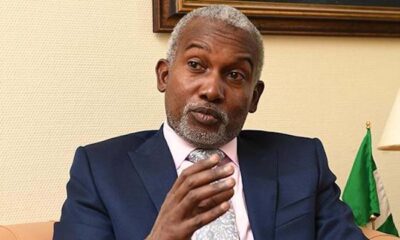News
FG plans commodity board to regulate food prices

FG plans commodity board to regulate food prices
The federal government plans to establish a National Commodity Board to solve the escalating food crisis in the country.
Vice President Kashim Shettima made this known on Tuesday at a two-day high-level strategic meeting on climate change, food systems and resource mobilisation in Abuja.
Mr Shettima explained that the board would be mandated to assess and regulate food prices and maintain a strategic food reserve for stabilising the prices of crucial grains and other food items.
Mr Shettima noted that food security was one of the eight areas of priority declared by President Bola Tinubu as part of his Renewed Hope Agenda.
This, according to him, led to the declaration of a state of emergency to curb the current food crisis facing the country.
He highlighted ongoing policy reforms by the administration to ensure food and water availability and affordability.
“Our solution to the potential food crisis has become immediate, medium, and long-term strategies.
“The short-term strategy entails revitalising the food supply through specific interventions like the distribution of fertilisers and grains to farmers and households to cushion the effects of subsidy removal.
READ ALSO:
- Hardship now unbearable, insecurity alarming, APC clueless – PDP
- Miners’ debt to banks rises 296% in Q3 2023 amidst states’ bans
- Police arrest 34 suspected kidnappers, rescued 22 victims in two weeks
“It also entails fostering collaboration between the Ministries of Agriculture and Water Resources for efficient farmland irrigation, ensuring year-round production, and addressing price volatility by establishing a National Commodity Board.
“This board will continually assess and regulate food prices, maintaining a strategic food reserve for stabilising the prices of crucial grains and other food items,” said the vice president.
He assured that the Tinubu administration was fully investing in restoring degraded land to solve the current food crisis.
Mr Shettima said, “There are ongoing plans to restore four million hectares, or nearly 10 million acres, of degraded lands within the nation’s borders as its contribution to the AFR100 Initiative.
He promised the current administration would engage security agencies to protect farms and farmers.
“We won’t only make it safe for farmers to return to their farms, but we will also ensure the activation of land banks.
“There are currently 500,000 hectares of already mapped land that will be used to increase the availability of arable land for farming, which will immediately impact food output,” he said.
Mr Shettima said the current administration was collaborating with mechanisation companies to clear more forests and make them available for farming.
He said the Central Bank of Nigeria will continue to play a major role in funding the agricultural value chain.
Earlier, Gloria Akobundu, the national coordinator of the African Union Development Agency-New Partnership for Africa’s Development (AUDA-NEPAD) Nigeria, commended Mr Tinubu for his efforts towards making Nigeria a great nation.
FG plans commodity board to regulate food prices
News
Libya nabs three Nigerians over drug trafficking

Libya nabs three Nigerians over drug trafficking
The Samnu Police Department in southern Libya detained three Nigerians for drug trafficking.
According to a statement issued by Migrant Rescue Watch on X (previously Twitter) on Sunday, the suspects were apprehended carrying a quantity of hashish that officials believe was meant for sale.
The arrests were made during a targeted operation in the town of Samnu, Murzuq region, which is known for smuggling and human trafficking due to its proximity to Libya’s southern borders.
READ ALSO:
- EFCC arrests 36 suspected internet fraudsters
- Obama reacts as Trump freezes $2.3b Harvard University funding
- Peter of P-square testifies against brother in fraud case
This operation is part of a larger security effort to combat drug-related crimes and cross-border trafficking of migrants.
The suspects’ identities have not yet been made public. Authorities acknowledged that the case had been turned over to the public prosecutor for further investigation and judicial action.
The statement said. “Samnu Police Dept. arrested 3 #migrants of Nigerian nationality on charges of drug trafficking. The trio were found in possession of a quantity of hashish earmarked for sale. The case was referred to public prosecution.”
Libya nabs three Nigerians over drug trafficking
News
NIS expands contactless passport renewal to United States, others

NIS expands contactless passport renewal to United States, others
The Nigeria Immigration Service (NIS) has announced the expansion of its Contactless Biometric Passport Application System to several countries in the Americas.
In a recent statement by ACI AS Akinlabi, Service Public Relations Officer at NIS Headquarters in Abuja, confirmed that the service under Comptroller General Kemi Nandap is rolling out the next stage of implementation across Brazil, the United States, Mexico, and Jamaica this month.
The contactless system, which enables Nigerians living abroad to renew their travel document without physically visiting passport offices for biometric enrollment, went live in the United States on April 11. Mexico, Brazil and Jamaica are scheduled to gain access on April 14.
READ ALSO:
- I don’t have a second wife or family – Super Eagles striker Brown Ideye
- OAU student electrocuted while retrieving football from nearby compound
- Bomb blast: Senator Ndume visits victims at hospital, offers financial support
“This expansion represents our commitment to innovative and efficient service delivery to Nigerians anywhere in the world,” said ACI AS Akinlabi, Service Public Relations Officer at NIS Headquarters in Abuja.
The application system is currently available on the Google Play Store as “NIS Mobile” and allows passport renewal without in-person biometric enrollment. An iOS version for Apple devices is under development and will be released soon, alongside an enhanced version of the Android app to improve user experience and accessibility.
The NIS further confirmed that the Contactless Passport App is now operational in Canada, the USA, Mexico, Jamaica, Brazil, Europe, and Asia. Australia and Nigeria itself remain pending, with implementation dates to be announced in the future.
NIS expands contactless passport renewal to United States, others
News
Tariff: NACCIMA warns against economic instability, job losses

Tariff: NACCIMA warns against economic instability, job losses
The Nigerian Association of Chambers of Commerce, Industry, Mines, and Agriculture (NACCIMA) has expressed fear that unless the Federal Government takes deliberate steps to increase Nigeria’s non-export earnings, the current global tariff war may lead to job losses, low foreign exchange inflow, and economic instability.
This was the position of the President of NACCIMA, Dele Oye, as the chairman at the Vanguard Economic Discourse 2025 with the theme, “Nigeria’s Economic Outlook 2025: Hardship and Pathways to Sustainable Recovery”, held last week in Lagos.
Among other things, Oye who is also the Chairman of the Organised Private Sector of Nigeria (OPSN), emphasized the need for a viable and affordable homegrown democracy.
His words: “In this pivotal moment, we must recognize and confront the significant challenges before us—challenges that have been magnified by the advent of America’s “America First” policy.
READ ALSO:
- Portable arrested over alleged defamation against Osupa
- Varsity strike looms as NASU alleges secret ASUU-FG deal on allowance
- Despite trade spat with US, China exports rises 12.4%
“This paradigm shift in global trade, driven by protectionism and tariffs, presents a unique and formidable array of obstacles for developing nations such as ours.
“The world we once knew, one characterized by cooperative, rules-based trading systems under the World Trade Organization, has given way to an environment fraught with uncertainty. This transformation not only disrupts global markets and supply chains but poses an acute threat to our competitive standing in international trade.
“The recent implementation of a 14% tariff on Nigerian exports to the United States directly jeopardizes what has historically been a critical market for our key goods, including crude oil, liquefied natural gas, and agricultural products. “The ripple effects of reduced demand could precipitate job losses, economic instability, and a decline in vital foreign exchange inflows, particularly for our non-oil sectors”.
“Indeed, the ramifications of current U.S. policies go beyond tariffs. We are witnessing a significant decrease in funding for initiatives that empower Africa’s burgeoning start-ups. The $51 million cut from the United States Development Fund, which affects countries like Nigeria and Kenya, exemplifies the broader challenges we face. The grants previously allotted to our SMEs are critical for nurturing innovation and entrepreneurship within our local economies”.
In the face of these challenges, Oye said Nigeria must act decisively and strategically to reshape its economic destiny where adversity can give rise to opportunity.
Tariff: NACCIMA warns against economic instability, job losses
-

 Business2 days ago
Business2 days ago5 facts about trending digital trading platform, CBEX
-

 Insurance2 days ago
Insurance2 days agoLasaco Assurance attains ISO/IEC 27001:2022 certification for information security management
-

 International3 days ago
International3 days agoObama reacts as Trump freezes $2.3b Harvard University funding
-

 metro2 days ago
metro2 days agoBREAKING: Court strikes out defection suit against 27 pro-Wike Rivers lawmakers
-

 metro2 days ago
metro2 days agoNatasha’s allegation against Akpabio has contradictions – Agbakoba
-

 Politics2 days ago
Politics2 days agoNNPP lawmakers seek to rejoin APC after fallout with Kwankwaso
-

 Entertainment2 days ago
Entertainment2 days agoPortable regains freedom after Osupa drops cyberstalking case
-

 metro2 days ago
metro2 days agoNigerians lose N1.3tn as ponzi scheme CBEX collapses













